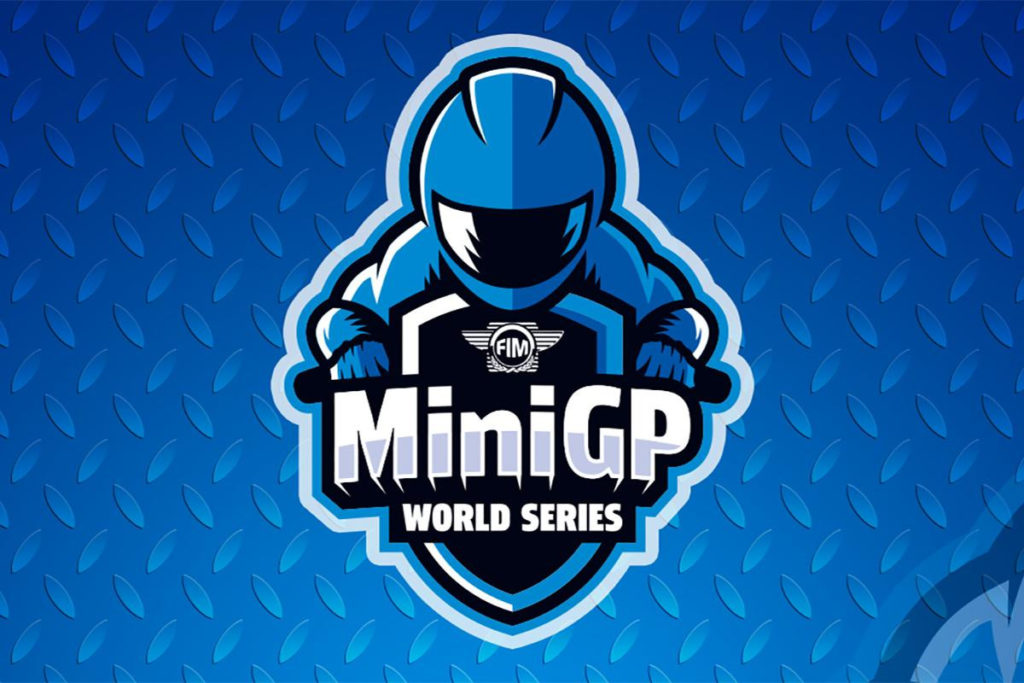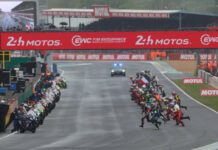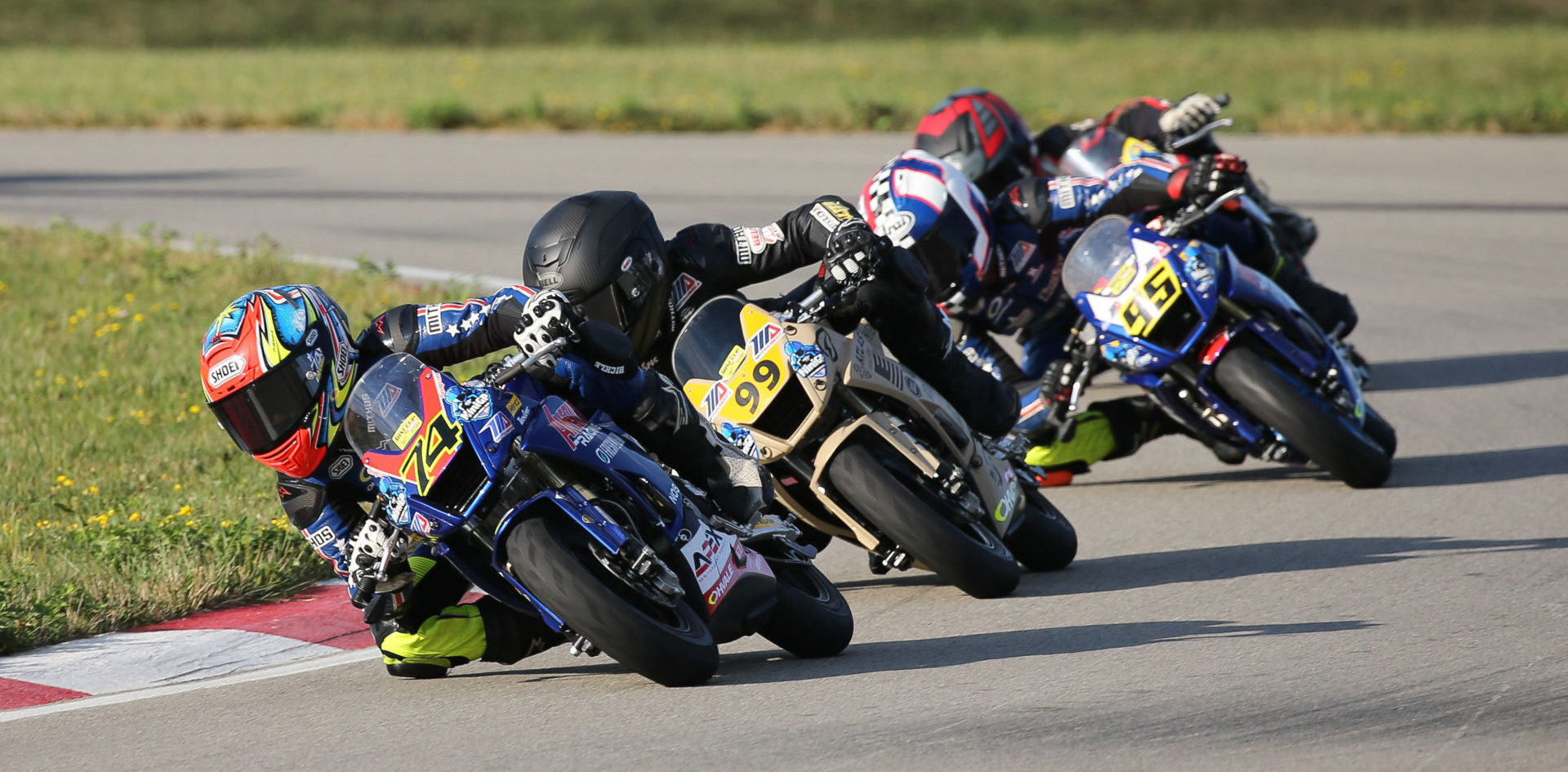By Michael Gougis
In 2008, Ryan Fleming recognized that youth motorcycle road racing in the U.S. was going through a seriously bad period and decided to do something about it. He founded NJminiGP and trademarked the name MiniGP. That phrase now represents a limited liability company based in New Jersey. Under that company’s umbrella, franchisees currently operate six mini road racing organizations in the eastern United States.

Imagine Fleming’s surprise when the FIM and Dorna Sports, owners of the commercial rights to the MotoGP and Superbike World Championships, announced in early 2021 the establishment of the FIM MiniGP World Series, with national series operating around the world. Fleming believes that Dorna’s name for its organization infringes on his company’s trademark.

“We have spent over a decade working to build a program that this sport is in dire need of,” Fleming told Roadracing World. “We have worked to create a sustainable instructional and developmental program that supplies top talent for the highest level of motorcycle racing. We have franchised this product up and down the East Coast successfully. Our name is everything that we are. We can’t lose our name. It’s who we are.”
Roadracing World asked Dorna in early December to respond to allegations that it was violating the MiniGP trademark. To date, Dorna has not responded.
Trademark law is a relatively well-settled area of jurisprudence. There are tests that are applied by a finder of fact to determine whether a trademark has been infringed upon. The United States Patent and Trademark Office grants U.S. patents and registers trademarks. According to that office, there are two key factors that determine whether a trademark infringement has occurred.
The first is the degree of similarity between the marks in question. Obviously, both the U.S.-based organization and Dorna use the word “mini” and the abbreviation “GP” run together as one word. The second key factor is the similarity between what is being advertised and marketed. Or, as the Patent and Trademark Office states, “whether the parties’ goods and/or services are sufficiently related that consumers are likely to assume (mistakenly) that they come from a common source.” Obviously, both the New Jersey organization and the FIM organization operate mini road racing series.
Minor factors a court may consider, according to the patent office, include:
How and where the parties’ goods or services are advertised, marketed, and sold. MotoAmerica’s Mini Cup series is part of the FIM MiniGP World Series, and in 2021 races were held on the East Coast of the U.S., in the same geographic area where the U.S.-based MiniGP organizations operate.
The range of prospective purchasers of the goods or services. The geographic areas of MotoAmerica Mini Cup/FIM MiniGP World Series and the New Jersey organization clearly overlap, meaning that riders who participate in one could, geographically at least, participate in the other. And in the world of the Internet, news releases aren’t posted “anywhere,” but exist as part of the World Wide Web, meaning that the potential audience of readers is literally, well, world-wide.
Whether there is any evidence of actual confusion caused by the allegedly infringing mark.
The defendant’s intent in adopting its mark.
The strength of the plaintiff’s mark. This is something that Fleming’s organization has worked to protect and grow over the years.
“Countless organizations have attempted to operate under our name, hoping to grab on to the coattails of our success,” Fleming says. “Most times a simple request to cease and desist gets them to stop utilizing the MiniGP name. In some cases, it took multiple emails and phone calls.
“We’ve contacted social media outlets to assist in taking down company pages that infringe on our trademark successfully. In some cases, organizations have continued to use our name based on a technicality like spelling (out the words ‘Grand Prix’).”
There are areas where there are differences, although it would be up to a finder of fact to determine whether they are significant.
First, while there is similarity between the marks in question, they are clearly not identical. The U.S. company has an established format for the name, with the geographic region first and the “GP” at the end. For example, the South Florida franchise is identified as SFLminiGP. Dorna’s phrase starts with the sanctioning body – FIM – and ends with the geographic identifier. For the U.S., the series is officially known as the FIM MiniGP North America Championship. In addition, the logos for the series look nothing alike. However, it is hard to get around the fact that the phrase “MiniGP” is at the core of both names.
Second, on a detailed level, the series are very different. The age requirements for riders are different. The FIM series requires a spec motorcycle (an Ohvale GP-0 160) and spec Pirelli tires. The New Jersey operation caters to a much wider variety of machines, tires, and rider ages. The products, in other words, have significant differences. A machine, rider, and tires that are all legal in the U.S.-based series may not be allowed into the FIM events. However, again, it is hard to ignore that both are youth-based motorcycle road racing series.
The range of prospective customers. Currently, the FIM MiniGP World Series operates in numerous countries, and it would be hard to argue that riders in those countries would confuse the FIM operation with the New Jersey-based operation. But in the U.S., the entire population of racers who qualify for the FIM events would be eligible to race with the New Jersey-based organization. Obviously, the prospective customers for each series would be pulled from the same pool in the eastern U.S.
From a common sense viewpoint, it’s hard to believe that a court in the United States would look kindly on what appears to be an international sanctioning body (FIM) and an international racing series promoter (Dorna) simply appropriating an American company’s trademark.
Roadracing World will follow up with any response received from Dorna Sports, and will report on any legal challenges as they develop.







